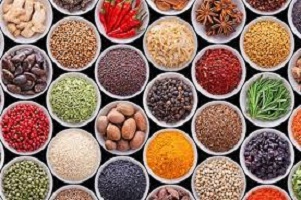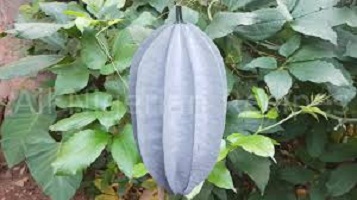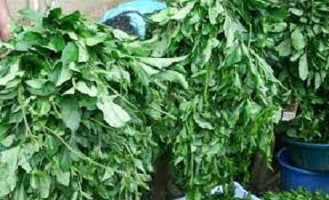20 Nigerian Spices, Herbs, & Seasoning in Nigeria
20 Nigerian Spices, Herbs, & Seasoning Popular in Nigerian Kitchens. Please Watch >>>

Nigerian Spices, Herbs, & Seasoning are a reflection of the country’s long culinary tradition as well as its abundant natural resources of herbs and seeds.
Nigeria’s cuisine culture, like that of the rest of Africa, bears the scars of colonialism and commerce with other continents.
These characteristics are mirrored in the wide range of tastes found in West African dishes.
The flavor of Nigerian foods is distinctive. Spices, herbs, and seasonings are used to prepare them, which is one of the main reasons.
But, in addition to flavor, these spices provide nutritious value to the food you eat.
My investigation has revealed that there are considerably more traditional Nigerian Spices, Herbs, & Seasonings than we are aware of, let alone use.
My rationale is that if our forefathers were able to prepare fantastic, wonderful, delicious, and nutritious meals with them back then, I see no reason why we shouldn’t be able to do it now!
I believe the challenge is gaining an understanding of what Nigerian Spices, Herbs, & Seasoning are, where to buy/source them (from Nigerian local markets, the spice market in Nigeria), and how to best use them, all of which are nicely stated in this article.
Therefore, relax, because I’ll share with you my expertise in the few Nigerian spices, herbs, & seasonings that I’ve used in my Nigerian kitchen.
Please feel free to add your experience with Nigerian Spices, Herbs, & Seasoning, ideas, or general remarks to this non-exhaustive list.
Checkout These Related Articles >>>
- Spices in Ghana | Local Names of Spices | Natural Spices
- Ogiri Isi African Soup: Iru/Dawadawa/Okpei Flavor Enhancers
- Flavor Enhancer: Ogiri Okpei Nigerian Seasoning Flavor
Here’s a look at some Nigerian Spices, Herbs, & Seasoning, as well as their nutritional and therapeutic properties.
Before We Continue, Please Note >>>
Do you consider garlic and ginger to be seasonings? Please, let me your answer in the comment section below. I love hearing from you my lovelies
I only use garlic and ginger when I’m creating Western dishes that require them, what about you?
Table of Contents
Nigerian Spices, Herbs, & Seasoning Popular in My Nigerian Kitchen
- Salt/sodium chloride
Salt is the only condiment that provides our food flavor. I season everything I make with salt, but only a pinch. My family did not consume a lot of salt when I was growing up.
I’ve become used to not eating a lot of salt to the point where I can eat dinner without any salt at all.
I rarely add salt to Egusi Soup because egusi takes on a salty flavor when cooked. And, by the time you add salty stockfish, crayfish, and stock cubes, the Egusi Soup may already be salty enough for me and my family. When making Egusi Soup, keep in mind that it is quite easy for it to become salty.
- Thyme
Thyme is an intriguing spice with a wide range of uses. This spice provides several health advantages. Thyme, for example, has been shown to protect the heart and enhance blood circulation.
It has also been connected to the treatment of respiratory disorders like bronchitis and seasonal allergies. Thyme, on the other hand, may induce stomach discomfort if you have a sensitive stomach.
It can also be used in a variety of ways. You can use it to season meat or make Jollof or fried rice with it.
- Curry leaves
Curry leaves are frequently used in the preparation of fried or jollof rice to give the cuisine a distinct flavor. Calcium, phosphorus, iron and vitamins A, B, C, and E are all found in the leaves.
Curry leaves have several health benefits, including:
- Reducing blood cholesterol
- Lowering blood sugar in diabetics
Curry leaves have several health benefits, including:
- Black pepper
Black pepper is another spice that is noted for imparting a distinct flavor to meals. It’s commonly used to give pepper soup a classic spicy flavor.
Black pepper’s origins can be traced back to South India. However, the pepper has been grown in tropical nations such as Nigeria, where it has thrived.
The following are some of the nutritional advantages:
- Cancer prevention
Vitamin C, vitamin A, flavonoids, carotenes, and other anti-oxidants included in the spice aid to eliminate free radicals and protect the body’s cells. As this breast cancer treatment revealed, it is claimed to be twice as effective as turmeric in preventing cancer.
It is preferable to eat freshly ground pepper rather than frying it in your cuisine.
- Digestion
Black pepper contains piperine, which stimulates the stomach to create more acid, which aids digestion.
- Infections of the respiratory tract and allergies
Due to its antibacterial properties, black pepper can be used to treat colds and coughs.
You can add a teaspoon of honey to the crushed black pepper.
It may also aid in the relief of chest congestion. To do so, combine the black pepper with hot water and eucalyptus oil. The pepper is also high in vitamin C, which aids in the treatment of colds.
- Loss of weight
Black pepper is also a fantastic weight-loss aid. It contains phytonutrients that can aid in the breakdown of fat cells and the enhancement of
metabolism.
- Improves skin
Although black pepper is a good exfoliant, it should not be used directly on the skin. You can mix it with a little honey and then apply it to your skin. This combination can also aid in the removal of wrinkles and vitiligo.
- Depression
Piperine, found in black pepper, stimulates the brain and aids its healthy functioning. This has been demonstrated to be beneficial in the treatment of depression.
You can also add freshly crushed pepper to practically any dish. Salads, soups, pasta, and other dishes fall within this category. The best option is to use freshly ground pepper.
- Calabash nutmeg
Depending on where you are from in the country, it is called ehu, ehuru, or two.
The essential oils included in the seed are responsible for the nutmeg’s scent and smell.
Always use tablespoons, and the longer you let it infuse, the more flavorful your food will be.
Nutmeg is high in potassium, calcium, manganese, iron, zinc, copper, magnesium, B-complex vitamins, vitamin C, folic acid, riboflavin, niacin, and vitamin A, as well as a variety of flavonoid anti-oxidants.
- Onions
Onions are a flavor enhancer that can be used in meat, fish, chicken, or soups.
You can also use it to make oatmeal, jollof rice, and beans. Some traditional dishes, such as bitter leaf soup or ora soup, may not function well with onions. It can, however, be added to pepper soup.
Onions, when eaten raw, have been shown to cut harmful cholesterol levels. It also contains quercetin, which plays an important role in cancer prevention.
- Ogiri Okpei
Okpei Ogiri is a popular Igbo spice that is fermented, mashed, and compressed locust beans. In the same way, the Yorubas name the unfermented one iru.
If you’re not sure how to make ogiri, here’s a simple tutorial:
- Firstly, sort the seeds, wash them, and clean them in water.
- Then, boil the seeds until they are soft enough to handle. Afterward, for simple removal, pull off the covering.
- After that, wash the seeds once again and remove any excess water using a sieve.
- Fourthly, put the seed in a container and cover it with leaves from the area. Plantain leaves can be used.
- Now, allow for fermentation to take place over four days. To speed up the process, place the container in direct sunshine.
- Finally, after the seed has fermented, grind it into a smooth, thick paste, then mold it into little balls and let it out to dry in direct sunshine.
Your ogiri is now ready to use after drying. The fat, protein, and carbohydrate content of locust beans is high.
It is also a good source of fat and calcium for people who live in rural areas.
Among the nutritional benefits are:
- Lowers blood sugar and cholesterol levels
- Enhances vision
- It stimulates the digestive system.
- Treats hypertension and stroke.
- Controls the spread of germs
- Relieves diarrhea
- Weight loss
The crushed bark of the locust bean tree has also been reported to aid wound healing. When combined with other ingredients, it can be used to treat leprosy.
- Anise Seeds
Seeds of anise contain essential volatile oil with a distinct sweet and aromatic scent.
The seeds contain anethole, an essential oil that gives them their distinct scent.
Both the fruit husks and the seed oil can be used as a seasoning for your food.
Anise seed oil has been connected to a variety of qualities, including digestive, expectorant, stimulant, carminative, tonic, antispasmodic, and antiseptic effects.
The B vitamins pyridoxine, niacin, riboflavin, and thiamine are all found in abundance in the seeds.
Anise seeds contain antioxidant vitamins such as vitamins A and C, as well as minerals such as calcium, iron, copper, potassium, manganese, zinc, and magnesium.
Because of the potassium component in anise seeds, which helps to manage heart rate and lower blood pressure, it may be beneficial to persons with hypertension and cardiac problems.
Copper boosts the development of red blood cells, which is beneficial to persons who are anemic.
Anise seed is accessible all year in both dry and powdered forms. It is recommended that you purchase them in small quantities because essential oils evaporate with time and lose their flavor.
You can keep your product in cool, dark settings in sealed containers.
Nigerian Spices
Anise seeds can be used to treat a variety of ailments, including asthma, bronchitis, and cough.
Flatulence, bloating, colicky stomach discomfort, nausea, and indigestion are all symptoms of digestive diseases.
Anise seed decoction can aid in the production of breast milk in nursing moms.
When children have runny noses, anise seed water can help them.
You can add anise seed oil or fresh leaves to your food when cooking. The mixture imparts a pleasant, aromatic flavor to your food.
Traditional soups, sauces, bread, cake, and biscuits are just a few of the meals that this spice can be used in.
- Scent Leaves
It’s also known as beletientien leaf or sweet basil. It’s a fragrant herb used mostly for its scent and therapeutic properties. It can be purchased either fresh or dried.
When making soups and stews, scent leaves can be a nice addition. It can also be put to suya to make it more flavorful. The scent of leaves aids with blood circulation.
- Dried herring
Dried herring, also known as shawa or Bonga fish, is not a spice, but it adds a traditional taste and flavor to traditional dishes like mon-moin and ifokore.
Herrings contain omega-3 fatty acids, which have been shown to improve brain function.
- Turmeric
Turmeric is known to the Yorubas as ata’le pupa. It comes in three different forms: fresh, dried, and powdered.
When used in soups, stews, and marinades, it adds a particular flavor to the dish. It can also be used to make zobo or ginger tea.
Turmeric is well-known for its immune-boosting properties.
- Lemon Grass
Lemongrass is a type of grass that grows in
Because of its pleasant scent, the Urhobo people frequently use lemongrass.
Traditional pepper and yam porridge can be made with it. It can also be used to make fish or chicken-based dishes.
Lemongrass can be used to make tea as well.
Lemongrass can help with gastrointestinal problems, fever, and the common cold.
- Bay leaf
The bay leaf is a dark green leaf with a strong odor. Soups, stocks, and broth are all made with it.
Bay leaves come in completely dried leaves and can be utilized in Jollof and fried rice dishes.
Calcium, magnesium, potassium, iron, and manganese are all abundant in the bay leaf.
It has proven to be effective in the treatment of arthritis and other types of bodily aches and pains.
- Cloves
Kanafuru is the Yoruba word for it. The clove plant’s dried flower buds have a distinct sweet aroma and spicy flavor.
It can be used as a seasoning in a wide range of dishes. Pepper soup, suya, and other savory meat dishes are among them.
Clove has long been used to treat toothaches.
- Cumin
Cumin is a distinct spice. It tastes similar to mil curry, but it has a more delicate and pleasant flavor.
It can be used to make fried rice and jollof rice.
- Boosting the immune system • Asthma and bronchitis treatment • Treating anemia are just a few of the health benefits.
- Shallot
Shallots are known as alubosa were in Yoruba. Shallots are a cross between onions and garlic. It has a subtle sweetness to it and can be used to season meat and seafood dishes. It can also be sliced and sprinkled on salads as a garnish.
Shallot’s health benefits are similar to onions’, including cancer prevention and lowering harmful cholesterol levels.
- Chives
Chives are a type of onion that belongs to the onion family. Salads are garnished with stem.
It doesn’t have to be cooked with a meal to be effective. Improved heart health, bone health, and vision are just a few of the advantages.
- Paprika
Paprika’s origins may be traced back to Spain, and it’s often available in dried and powdered forms.
It can be used in soups and stews to provide depth. Because of its strong red color, it can also be used to color the stew.
Vitamins A, E, B6, iron, and capsaicin are all found in paprika. The antihypertensive characteristics of capsaicin are well-known.
- Uziza Leaves
Leaves of Uziza is a green vegetable/herb with a sweet scent that is used to flavor soups. When making ibaba soup, is often utilized by the Igbo and Efik people.
Uziza seeds can also be used to season soups like Banga and pepper soup with a spicy flavor.
Uziza leaves can be used to treat indigestion, flatulence, diarrhea, and dysentery, among other gastrointestinal issues.
- Uda
Negro pepper is another name for it. Uda has a fragrant crisp flavor with a faint bitter undertone, thus it should be used sparingly.
A Must-Read >>>
Pepper soup and Banga soup can be made with it. According to some studies, this pepper can be used to both induce labor and stimulate appetite.
FAQs
What spices are used in Nigerian cooking? Nigerian Herbs, Spices & Condiments
| Name | Uses |
| Ogbono | Added to act as a soup thicker. Examples, are Ogbono and okra soups. |
| Iyere (African black pepper) | Excellent spicing for soups and stews up and to make suya spice. |
| Partminger | Used majorly to season meat and chicken before the cooking/boiling process. |
In Nigeria, which seasoning is the best?
Maggi is Nigeria’s best seasoning cube, with years of experience in improving the taste of dishes.
In Nigeria, Knorr is the best seasoning cube, especially the chicken one. The only difference is that you’d have to use more of it to acquire the same salty taste as Maggi. Unilever’s product has become a household name
Essential Nigerian Spices for Your Kitchen
- Chili powder
- Cumin
- Crushed red pepper flakes
- Dehydrated onion flake
- Granulated onion
- Granulated garlic
- Black pepper.
- Oregano
What is traditional Nigerian food?
The Nigerian diet is dominated by starchy foods such as yam, cassava, plantains, rice, and beans.
They’re frequently served with a variety of substantial soups and stews cooked with various types of meat and vegetables.
Vegetable stews are popular among Nigerians, who eat them many times a week.
What are the most important ingredients and spices in Africa? East African Spices and Seasonings
Cumin seeds, ground turmeric, curry powder, coriander seeds, fresh tamarind, and grated coconut are common spices and flavors in coastal East Africa.
These components are frequently used in marinades for meat and fish.
What are spicy foods in Nigeria? Food musings: top 7 spicy Nigerian foods
- Suya
- Kilishi
- Pepper soup
- Asun
- Ayamase (Ofada stew)
- Ata din din
- Agoyin pepper
Why is Nigerian food so spicy? Have you ever wondered why Yorubas enjoy spicy foods so much?
Because they are accustomed to eating a lot of pepper, Yorubas think that eating peppery or spicy cuisine improves one’s quality of life, as evidenced by the Yoruba proverb “A soul that does not consume pepper is a powerless soul.”
As a result, the more pepper you consume, the stronger you grow and the better your immune system becomes.
People also ask
What are typical Nigerian spices? Common Spices and Seasonings you will find in my Nigerian Kitchen
- Salt is the one seasoning that gives taste to our cooking
- This is my favorite seasoning for any type of meat that I will use to cook stews
- Ehu or Ehuru or Ariwo
- Stock Cubes
- Onions
- Curry Powder
- Nutmeg
- Black Pepper
What is Nigerian seasoning?
The signature flavor of Nigerian meat skewers is yaji, or suya spice, a hot, umami-packed mixture of ground dried chiles, ginger, peanuts, and other ingredients
What are the best herbs and spices?
The following culinary herbs and spices show particular promise for promoting good health
- Curcumin, the Super Spice
- Cracking Into Nutmeg
- Sweet, Sweet Cinnamon
- Cool Mint
- Fields of Garlic
- Oh, Oregano
- La Vie en Rosemary
- Exotic Ginger
How do you make Nigerian spices? Which seasoning is the best in Nigeria?
With years of experience and a reputation for improving the flavor of food, Maggi is the best seasoning cube in Nigeria.
The chicken seasoning cube from Knorr is the best in Nigeria. The only difference is that you would need to use more of it to attain the same Maggi-like saltiness.
A Unilever product that is now well-known to everyone
What is the Nigerian name for anise seed?
Ogbono is the common name for etima seeds. It is used to make a delicious Nigerian dish.
What is Paprika in Nigeria?
Smoked paprika is normally relatively weak in flavor and used mostly for its vivid red color, which makes it an attractive garnish for many dishes.
It is known as tatashe here in Nigeria and is a fairly prevalent spice in both Spanish and Hungarian cuisines
What is traditional Nigerian food?
Nigerian Food: 8 Popular and Traditional Dishes to Try
- Jollof Rice.
- Iyan (Pounded Yam)
- Àmàlà (Yam Flour/ Cassava Flour/ Plantain Flour)
- Ogbono Soup (African Mango Seed Soup)
- Puff-Puff (Fried Sweet Dough Ball)
- Àkàrà (Fried Bean Cake)
- Pepper Soup.
- Suya (Spicy Grilled Kebab)
What is Suya Spice made of?
Kulikuli, a roasted peanut snack, cayenne pepper, and other spices are used to make authentic suya seasoning.
It goes well with steak, poultry, fish, lamb, and various vegetables and has a nutty, fragrant flavor
What herb has the greatest potency? What is the most powerful herb?
Turmeric
The most potent herb on the earth is unquestionably turmeric. It is mostly grown in India, China, and Indonesia and belongs to the ginger family.
It contains several substances with therapeutic potential. For instance, curcumin, a potent antioxidant found in turmeric, increases the body’s antioxidant enzymes.
What are the 5 basic spices?
The five spices we never want to be without are:
- Earthy and slightly bitter, ground cumin is an essential spice in most Indian and Latin American dishes
- Smoked Paprika
- Garlic Powder
- Chili Powder
- Cinnamon
What are the Basic herbs? Essential Herbs and Spices
- Thyme
- Basil
- Oregano
- Bay Leaves
- Chili Powder
- Smoked Paprika
- Rosemary
- Fennel Seed
What is black pepper called in Nigeria?
Common names for Piper guineense include Ashanti pepper and West African black pepper (Uziza in Igbo and Ata iyere in Yoruba).
What is the name of Ataiko in English?
Ataiko: [Otiako] Banga soup uses a tiny seed. Aframomum subsericeum has finally been identified. Although it may occasionally go by the name
“Alligator Pepper,” this term is used for several Aframomum species, including the much more well-known “Grains of Paradise” (Aframomum melegueta)
What is the local name for licorice in Nigeria?
Banga stick
The Banga stick is a wooden stick with striated bark that is referred to both by that name locally and as the Oburunbebe stick elsewhere.
It is frequently used in pots of Banga, a palm nut soup, either whole or processed into a powder.
Is Knorr a company from Nigeria? Is Knorr a Nigerian brand?
Unilever produces the brand Knorr (formerly Cadbury Nigeria). The company has maintained its dominance in Nigeria’s market for culinary seasonings.
What is Cameroon pepper?
a type of Capsicum chinense that is popularly used in Nigerian cooking because of its intense heat and distinctive flavor.
In West Africa, it is also known as Ghana pepper and Nsukka pepper, while in English-speaking markets, it is known as yellow lantern chili.
What is the local name for cinnamon in Nigeria?
Oloorun is the Yoruba name for cinnamon. It is a wonderful spice with powerful therapeutic properties.
What is chia seed called in Nigeria?
In Nigeria, chia seeds are still referred to as “chia seeds” locally. The truth is that India, not Africa or Nigeria, is where chia seeds first appeared.
As a result, neither Igbo nor Yoruba nor Hausa names for chia seeds are known. I’m hoping you get it.
What is the name of Nigerian cloves?
Cloves do indeed grow in Nigeria, where they are known as kanafuru.
They are a traditional spice, but in areas where Yoruba is spoken, they are more frequently employed in traditional medicines like agbo or aseje.
What is the Nigerian local name for cayenne pepper?
Shombo
In Southwest Nigeria, cayenne pepper is commonly referred to as “Shombo,” and it is a key spice in most dishes.
Soups, Jollof rice, stews, and sauces are all prepared using it. Capsaicin is found in cayenne pepper.
What is cayenne pepper called in Yoruba?
BAWA
Capsicum annum is the scientific name for cayenne pepper, and BAWA is the nomenclature used by the Yoruba people.
What is Rodo’s name in English?
The English name for ata rodo is the scotch bonnet.
What is the primary dish in Nigeria? What is the Nigerian main dish?
Nigeria’s national food is jollof rice. Rice is prepared by cooking it in a hearty tomato sauce so that it will absorb all the flavors.
Rice, tomatoes, tomato paste, onions, salt, and pepper are the most typical components of jollof rice.
What is West African spice?
A strong blend of peppery flavors makes up West African Pepper Seasoning. It includes ginger, allspice, crushed red chilies, black and white peppercorns, cubeb pepper, and grains of paradise.
The blend of these ingredients creates a superb all-purpose African spice mix.
What are African spices?
You will receive these 9 high-quality African and Middle Eastern spices and spice blends:
- With hints of toasted maple, this adds both sweet and delicately bitter notes to stews and curries
- Sumac
- Za’atar
- Harissa
- Baharat
- Berbere
- Ras el Hanout
- Pul Biber/Aleppo Pepper
Disclaimer: In our posts, we simply offer general information. It cannot be considered an alternative to authorized medical observation.
You are advised to refer to a medical doctor for further suggestions.



Your website Is helpful thanks
🙏